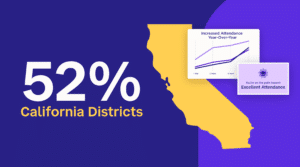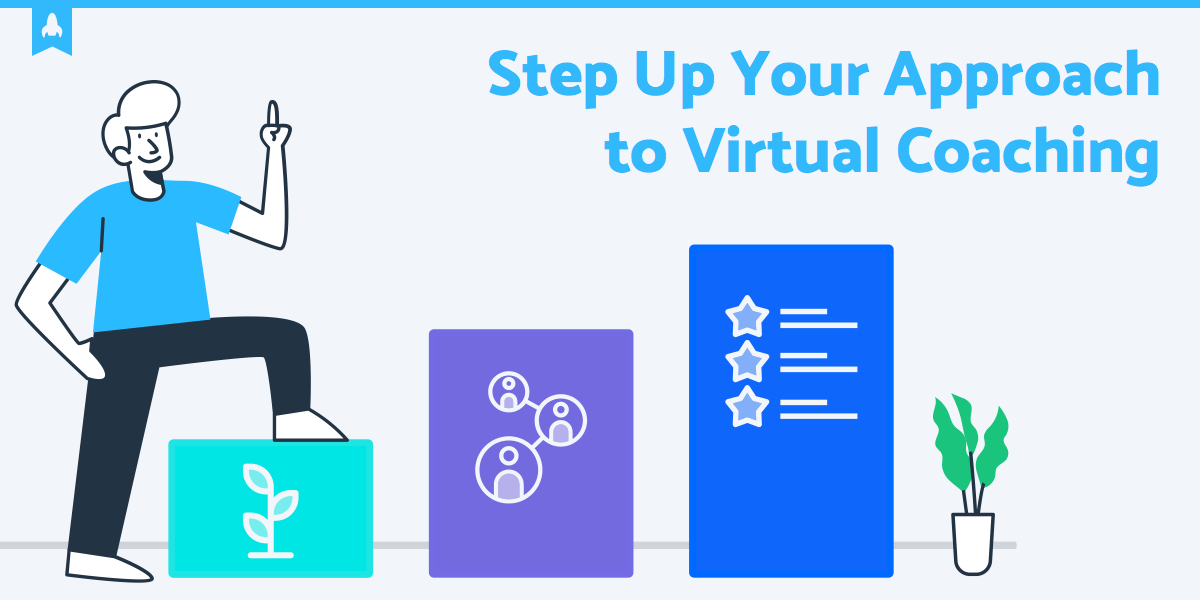
Featured Resource
Why Over Half of California School Districts Trust SchoolStatus
Read More >Join Mission: Attendance to reduce chronic absenteeism in 2025-26! >> Learn How <<






Are you experiencing waves of being very busy or not enough to do while working from home? If so, you’re not alone! Kristi Sacha, Instructional Coach Liaison for Akron Public Schools in Ohio, believes there are three major areas that ICs should focus their time on while working remotely.
T
he initial transition to online learning has been a big adjustment for educators. In those first few weeks, instructional coaches have been called upon to help teachers learn and use technology tools so that students can access online lessons and office hours. At this point—almost two months in—coaches might find that things are quieter than usual, as many educators have settled into distance learning.
The coaches I support shared that they wanted to continue to help teachers, but weren’t sure about the best way to do this in a virtual environment. To help them work through these challenges, I hosted a themed meeting the following week where I shared 3 areas where they could see improvements the fastest.
This first area is all about you! This is a great opportunity to focus first on your own practice as a way to help your teachers remotely.
Use the quiet time when teachers aren’t asking for help to develop and grow your coaching skills. Read articles, dive into that coaching book that has been sitting on your desk for months, get on Twitter to learn from other educational leaders, or try out a technology tool you’ve heard about but haven’t had time to investigate.
Now is also a perfect time to partner with other coaches in your district and connect with the wider coaching community. One way you can do this is by joining online sessions with experts or other leaders to improve your practice. You can also ask fellow coaches for ideas on how they’re supporting teachers.
Investigate and seek out new resources and tools, testing them from both a teacher and student view to get the full experience. Remember that not every suggestion will work for you and your context—it’s okay to pick and choose the ones that do.
It’s important to have a balance of knowledge and humility and to let others know that it’s okay to not know how to do something. This is more important now than ever. When you share that you don’t know something, you show teachers that you’re figuring out this new norm together. Your positivity is contagious and your vulnerability can be comforting to others!
Relationships are the foundation of all coaching work and there are some great ways you can continue to do this virtually.
Connection is how we form those relationships: while working remotely, be proactive and take the time to email or call teachers to check in and see how they’re doing. Be sure to ask if they have questions you can help address, or if they have any personal or health concerns you can assist with. Leverage existing meetings like grade level or content team meetings to discover possible needs.
You might find that teachers who haven’t asked for coaching support in a face-to-face setting may have questions in a digital teaching world. Now is the perfect time for coaches to build relationships with reluctant teachers now that they’re outside of the school building.
If you find you’re missing students, let your teachers know that you would love to continue to connect with them while they are learning from home. One way to do this is to ask if you can join in on a hangout a teacher has with their students, or you could volunteer to co-create or co-plan lessons for students.
Another way to build connections with teachers is to create or share a resource such as a Pear Deck, an Edpuzzle, a Flipgrid, or a Screencastify video. With these resources, be sure to provide a model of how it could be helpful with students and offer to help teachers share it with their class—or even create one together.
The relationship between a coach and principal is essential to any coach’s success. Be sure to meet or touch base with your principal weekly and ask what support they need. Principals may have identified some tasks for you, or they might just need someone to listen to them during this busy and challenging time.
Pro tip: Ask your principal to promote virtual coaching and encourage others to tap into your knowledge!
Reflection and feedback are critical in evaluating what’s working and what might need to be changed next round.
Teachers may not admit or know their needs. As a coach, you can use Elena Aguilar’s GAP Model to reflect on who might need help and why. Consider how to address possible gaps and keep in mind that these gaps might be different now that we’re teaching in a digital world.
Check in with teachers about what they need with a quick survey. When sending out surveys, it’s important to keep them simple. Provide choice, share some ways you can support them, and allow for individual ideas and input. In doing so, you may find that teachers might suggest a way you can help that you didn’t consider.
Pro tip: Use your survey to ask for good times to follow up with teachers. This helps reduce the hassle of scheduling time later on.
Take what you’ve learned from your one-on-one conversations with teachers and your surveys to offer tailored support. You might offer optional help camps for staff or develop tip sheets or help docs to address common questions.
I left our session that day energized and feeling as if other coaches could benefit from these suggestions, and I hope you find them helpful too! Remember that as we move forward during this unique and challenging time, we’ll become stronger and more impactful by staying positive, connecting with others, offering support, and continually reflecting on how we can improve our practice.
Kristi Sacha leads and supports coaches as the Instructional Coach Liaison for Akron Public Schools. Prior to this role, Kristi was a literacy coach, building coach, intervention specialist, and an elementary teacher.
Connect with Kristi on Twitter or by email!
{{cta(‘352a410e-db79-4f33-a482-d301e8041965′,’justifycenter’)}}
 SchoolStatusSchoolStatus gives educators the clarity and tools they need to get students to class and keep them moving ahead. Through our integrated suite of data-driven products, we help districts spot attendance patterns early, reach families in ways that work for them, and support teacher growth with meaningful feedback. Our solutions include automated attendance interventions, multi-channel family communications in 130+ languages, educator development and coaching, streamlined digital workflows, and engaging school websites. Serving over 22 million students across thousands of districts in all 50 states, SchoolStatus helps teachers and staff see what matters, act with speed, and stay focused on students.
SchoolStatusSchoolStatus gives educators the clarity and tools they need to get students to class and keep them moving ahead. Through our integrated suite of data-driven products, we help districts spot attendance patterns early, reach families in ways that work for them, and support teacher growth with meaningful feedback. Our solutions include automated attendance interventions, multi-channel family communications in 130+ languages, educator development and coaching, streamlined digital workflows, and engaging school websites. Serving over 22 million students across thousands of districts in all 50 states, SchoolStatus helps teachers and staff see what matters, act with speed, and stay focused on students.
News, articles, and tips for meeting your district’s goals—delivered to your inbox.






